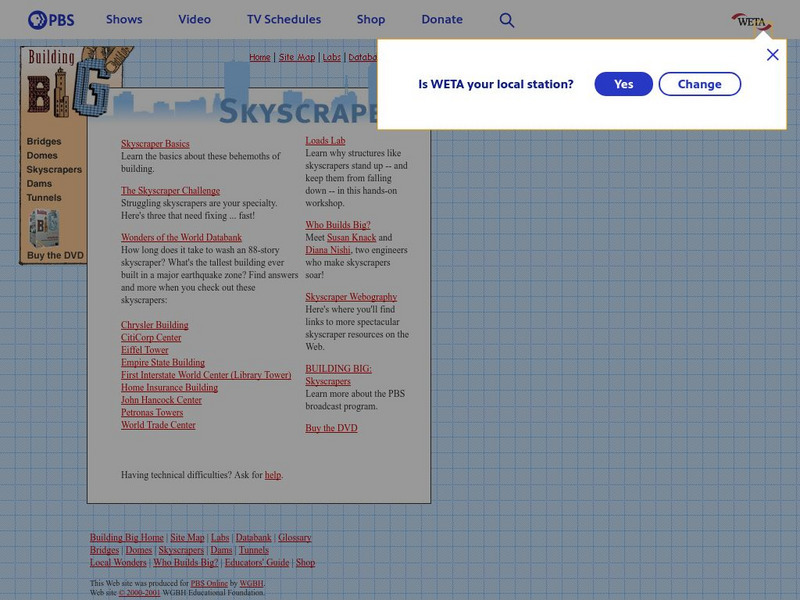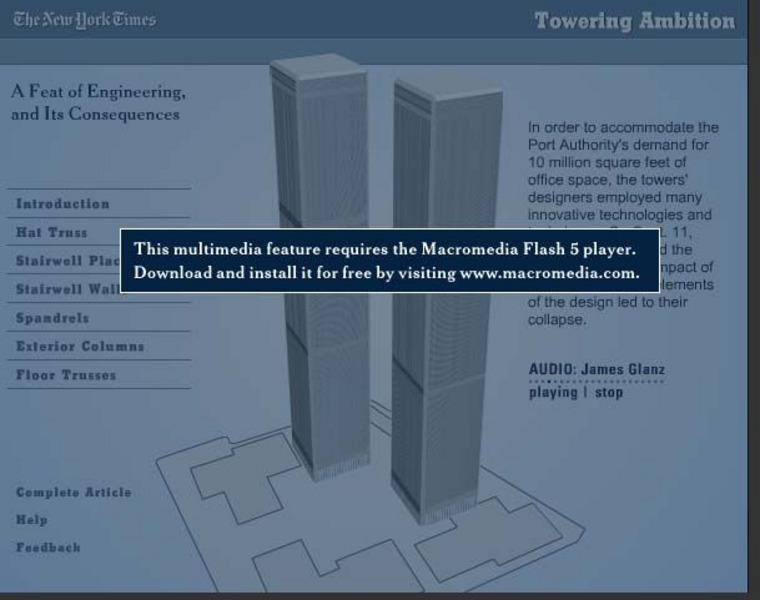Curated OER
Building Your Bridge Building Basics
In this technology worksheet, students examine the basic principles of bridge building design in order to answer the nine questions with the help of the web links on page 2.
Curated OER
Bridges
Ninth graders use model-building to help comprehend the forces and phenomena at work in the world around them. They describe gravity as a universal force that pulls everything toward the center of the earth. Students distinguish between...
Curated OER
What Structural Challenges Do Bridge Builders Face Today?
Young scholars investigate the process of constructing a bridge. They study the meaning of structural force and draw pictures of examples. Students identify the types of building materials have been used in history to construct bridges...
Curated OER
Galloping Gertie
Students use the internet to discover what a galloping gertie is. After reading an article, they answer questions and view a slideshow of various bridge designs. They examine what happened to the structure when the bridge collasped and...
Curated OER
Let's Settle It!
Pupils investigate and record data about sedimentation rates. They make a sedimentation bottle using aquarium gravel, sand and potting soil. They discuss the sedimentation rates that they see in their bottles.
Curated OER
Hang in There
Students view a video clip about bridges. They examine the cables that stablize the Golden Gate Bridge. They relate this concept to elevators.
Curated OER
Bridging the Gap
Students explore the role that bridges play in our society. They conduct an investigation to examine the various shapes and functions of bridges. They determine which type of bridge would best suit a given scenario.
Curated OER
Bridges: Local, National and Global Connections
Fifth graders examine the role of bridges in commerce and transportation. They create a schedule for building a bridge and how much money it would take to build one.
Curated OER
The Bridge Challenge
Students identify important structural elements in bridges. They use a worksheet and websites to investigate different types of bridges and variable factors that relate to building a bridge.
Curated OER
BRIDGE CONSTRUCTION
Students explore how to build a bridge and test how much weight it can support.
Curated OER
Build and Test
Pupils display what they have learned about bridges as they construct their bridge. They present their projects to the rest of the class. They compare and contrast the construction of the bridges.
Curated OER
Suspension Bridge Construction
Students build a model of a suspension bridge and test the amount of weight it support. They identify different types of bridges: suspension, arch, girder, truss, cantilever, cable-stayed and moveable.
Science Buddies
Science Buddies: Career Profile: Civil Engineering Technician
Civil engineering technicians help civil engineers in planning big projects such as building roads, dams, and waste treatment plants. This Science Buddies site lays out the requirements needed to become a civil engineering technician, as...
Science Buddies
Science Buddies: Project Ideas: Plan a City of the Future With Sim City
In this video and computer games science fair project, design and build a city of the future using SimCity. The Science Buddies project ideas are set up consistently beginning with an abstract, objective, and introduction, followed by a...
Science Buddies
Science Buddies: The Design Process: Creating a Stronger Truss
This is an interesting project that explores which geometrical shapes make the strongest bridge truss structures. It is a good introduction to the engineering design process. You'll design three different trusses, and use online...
Science Buddies
Science Buddies: Keeping You in Suspens(ion)
Find out the different strengths of two types of bridges, beam and suspension, by building your own. This Science Buddies science project gives you the means to find out. The Science Buddies project ideas are set up consistently...
Science Buddies
Science Buddies: Dome Sweet Dome
Geodesic domes are made of interconnected triangles that approximate the shape of a sphere. This project shows you how to build a geodesic dome using rolled-up newspapers and tape and then test how much weight your dome can support.
Science Buddies
Science Buddies: Solid Ground? Measuring Soil Bearing Capacity
Foundations for many types of structures rest on soil. This project shows how you can investigate the bearing capacity of different types of soil.
Science Buddies
Science Buddies: How Does Ratio of Sand to Cement Affect Strength of Concrete?
Concrete is one of those things that most of us don't think about much, yet we use it every day. We walk on concrete sidewalks, drive on concrete roads, and live and work in buildings with foundations made of concrete. It is a durable...
Science Buddies
Science Buddies: The Effect of Bridge Design on Weight Bearing Capacity
This Science Buddies project asks that you identify different kinds of bridges, discover why they are built as they are, and then build three different bridges of your own out of balsa wood. See which one you think can bear the heaviest...
Science Buddies
Science Buddies: Bridges That Can Take a Shake!
Building a bridge in San Francisco has to take into account the possibilites of earthquakes. This Science Buddies science project asks that you use different virtual bridge designs to withstand virtual earthquakes. The Science Buddies...
Other
Women in Mining: Asphalt Cookies [Pdf]
This activity introduces students to the civil engineering area of paving and road construction. Includes links to additional resources, a vocabulary list, background information, and images.
PBS
Pbs: Building Big: Skyscrapers
Information about the basics of skyscrapers, with profiles of nine big-building wonders. Extras include a loads lab, which illustrates how and why skyscrapers stand up and keep standing up, and interviews with builders, engineers, and...
New York Times
New York Times: How the Towers Stood and Fell
A multimedia graphic explains how certain structural elements of the World Trade Center helped to delay its collapse when it was attacked on September 11, 2001, whereas other elements probably sped up the towers' fall.















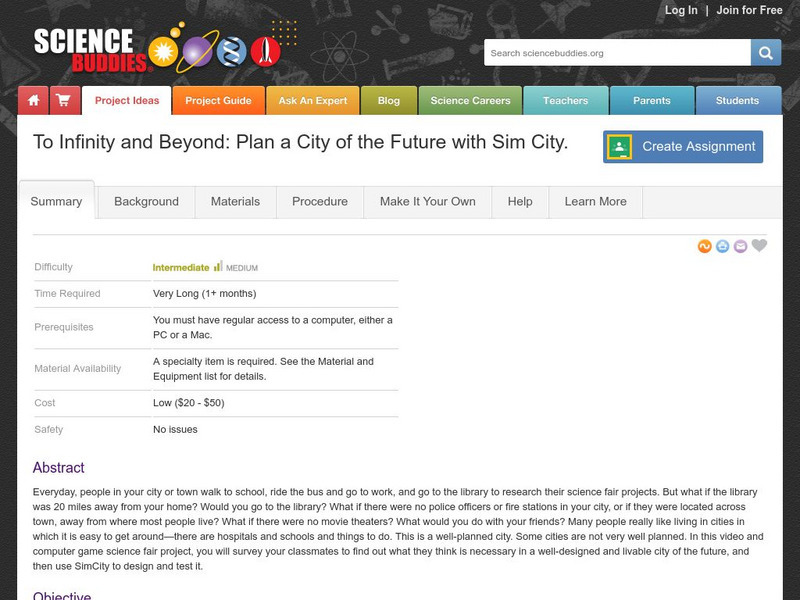
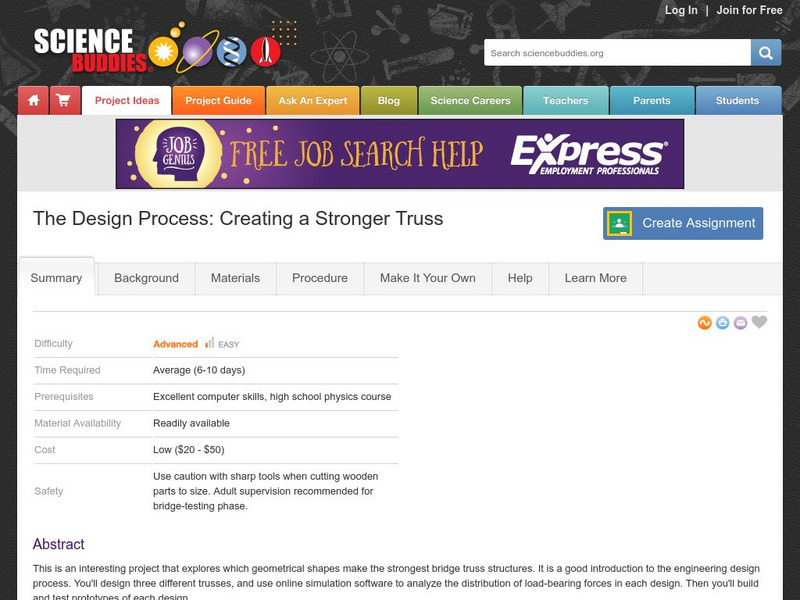
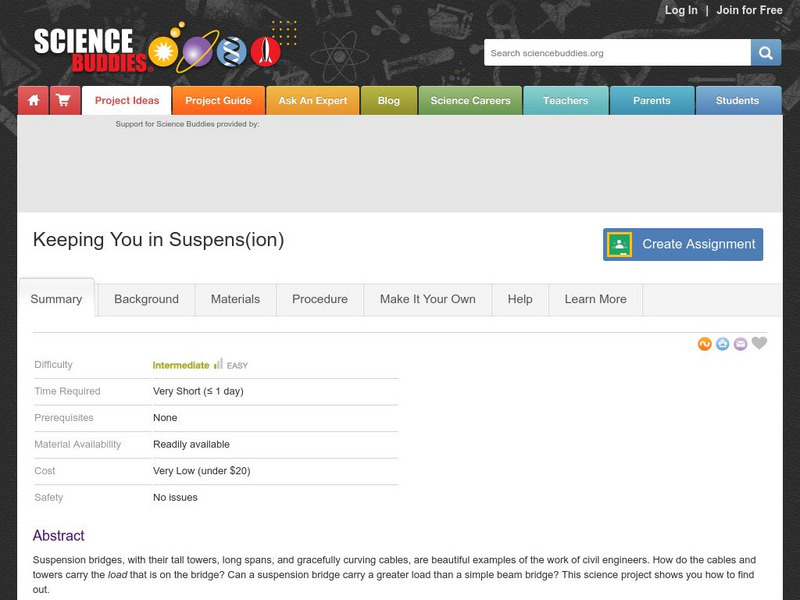



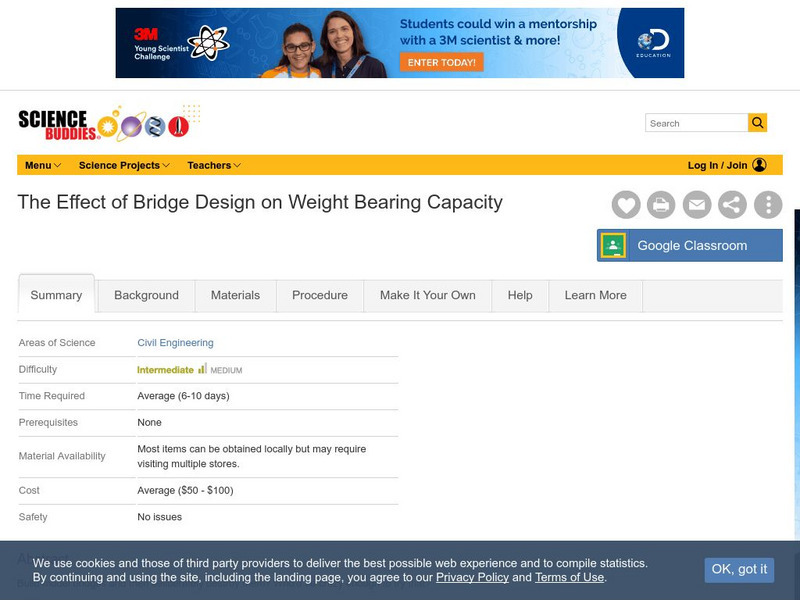
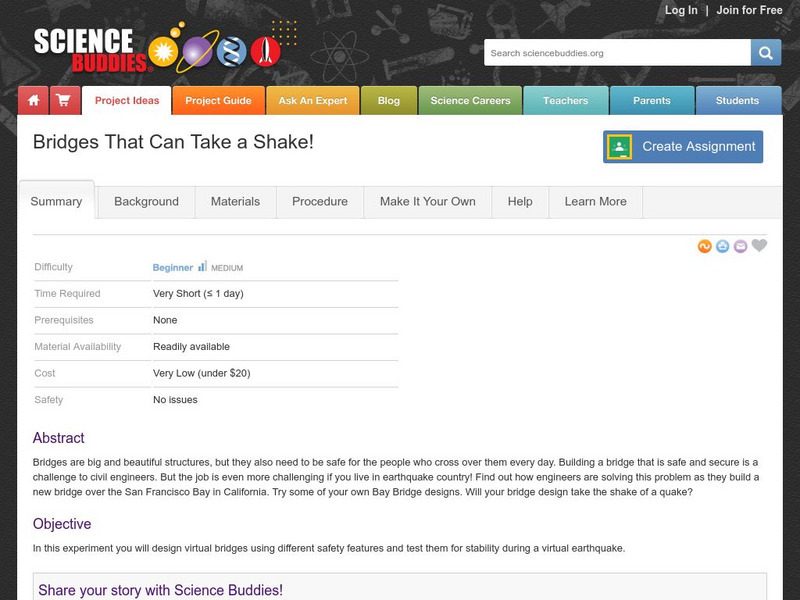
![Women in Mining: Asphalt Cookies [Pdf] Activity Women in Mining: Asphalt Cookies [Pdf] Activity](http://content.lessonplanet.com/resources/thumbnails/410009/large/bwluav9tywdpy2symdiwmduymc0xotawny0xewjoy2m1lmpwzw.jpg?1589984664)
